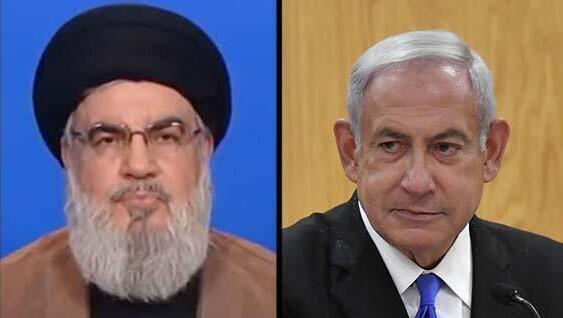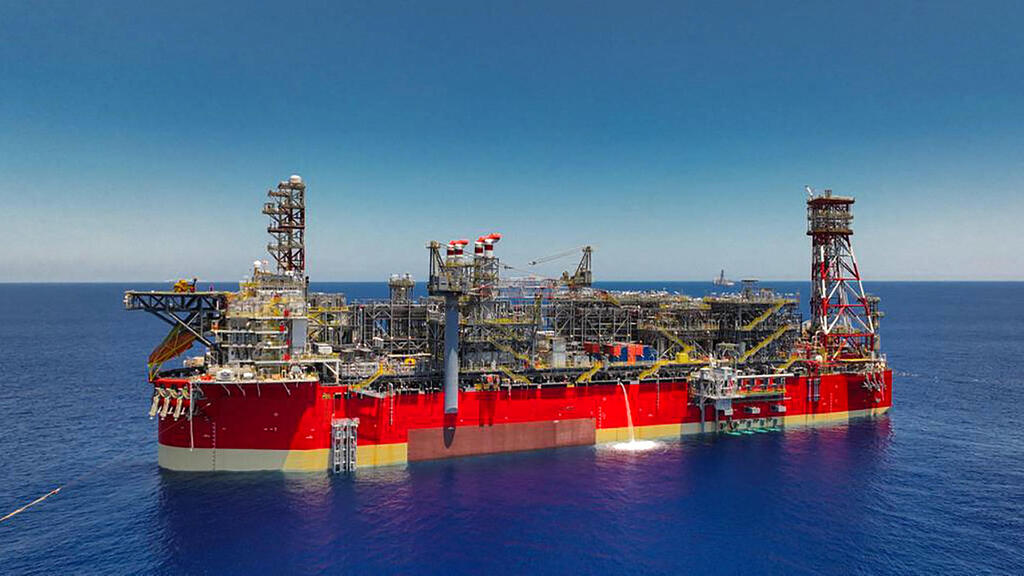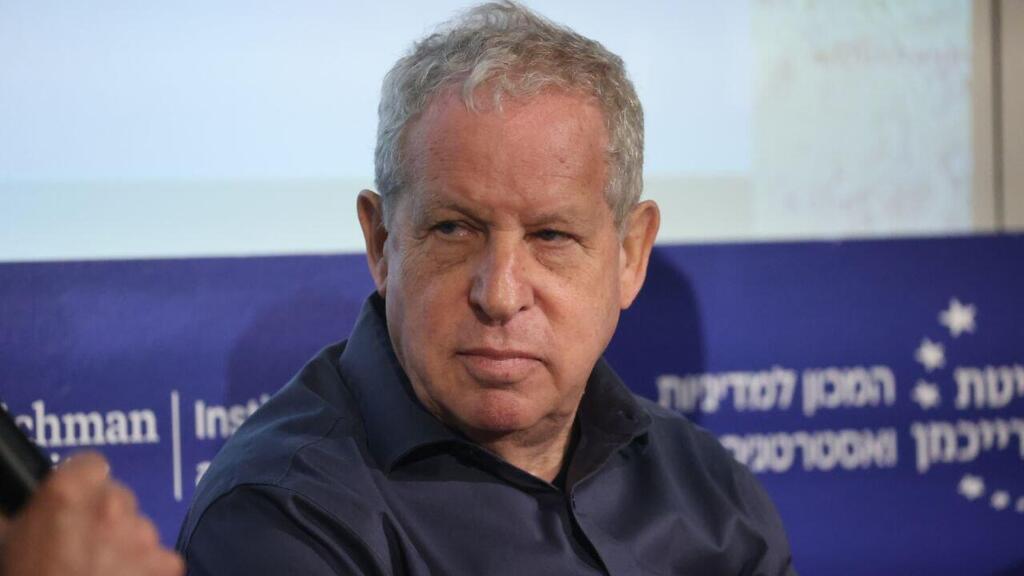The Lebanese-based Hezbollah organization has rejected the assertions of opposition leader Benjamin Netanyahu that he would not be bound by the pending Israeli-Lebanese maritime border agreement, according to a report in a paper affiliated with the terror group on Monday.
Netanyahu said publicly that a government under his leadership would not have signed the deal, which he described as a capitulation to the demands of the Iran-backed terror group.
In its report, the Al Akhbar newspaper said that claiming the deal is not binding, "must know that the resistance has the power to make others submit to its demands."
The agreement mediated by the U.S., would grant Lebanon a larger swap of economic waters that include the Qana natural gas field that is yet to be developed. According to the draft presented to the Lebanese and Israeli governments, Israel would receive a portion of the income that the Qana rig would yield.
Netanyahu's statement prompted an angry response from Prime Minister Yair Lapid, who accused his political opponent of endangering Israel's security and economic interests.
"Some facts for Netanyahu because he has not seen the draft of the agreement," Lapid wrote in a social media post. "Under the deal, Israel will receive 100% of its security demands, 100% of the Karish gas field and a portion of Lebanon's Qana gas field. I understand Likud is upset that they were not able to reach an agreement with Lebanon but that is no reason to join Hezbollah propaganda," Lapid wrote.
Former National Security Council chief, Maj. Gen. Ret. Giora Eiland, who was part of Israel's negotiation team, told Ynet that a deal was out of reach while a succession of Lebanese governments were fearful of Hezbollah and not because of Israeli demands.
"The issue of natural gas has become one of great importance in the world and this is the first Lebanese government to ignore Hezbollah's intimidation efforts," Eisland said.
"Seven years ago, Nasrallah said that in order to start a war with Israel, it will have to cause it massive damage, he must argue that he is a Lebanese patriot, and in the tale of a theft of Lebanese natural gas by its neighbor to the south, Hezbollah can appear to be the protector of his country's natural resources," he said.
In an earlier post, former U.S. Ambassador to Israel David Freidman claimed the Lapid government capitulated to the Lebanese demands. He said he had been involved in mediation efforts for years and Israel then was set to receive more than half of the territory and not lose 100% of it.
But in an interview on Monday, Bar Ilan University's Law Professor Arye Reich, said that the true details of the deal are still unknown. "There are rules in the international law that specify how a maritime border is to be determined, including the division of economic waters," Reich said. "If the cost line was straight, there would be no argument. We can all mark a 90° line. The problem is that the coast near the border with Lebanon, is not straight. It bends and has islands along it and therefore an agreement must be reached.
He explained that while Israel wanted to keep the line further to the north, Lebanon pushed for a more southern boundary and 870 square kilometers (335 square miles) were in dispute.
"I understood Israel would be granting Lebanon the Qana gas field and would receive a portion of proceeds from production there.
He said Israel had previously failed in its attempts to resolve such differences through international mediation. "This dispute has been in negotiations for the past decade, including during Netanyahu governments and the Americans were asked to intervene," Reich said. "Naturally the aim was to compromise," he said.
4 View gallery


Lebanon President Michel Aoun receives draft of maritime border deal from U.S. envoy
(Photo: EPA)
Reich also commented on calls from some right-wing legislators for a referendum to be held before any deal is signed, citing a 2010 law which requires a referendum or alternatively a 80 seat majority in the Knesset, before any Israeli territory can be conceded in any agreement.
The law professor said ultimately the decision would be made in parliament. "My understanding is that this is that the pending agreement does not deal with territory. Only with economic waters, and therefore the bill does not apply."




